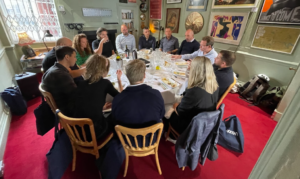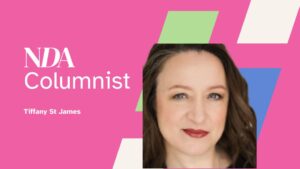Diversity matters. And it matters more than ever, at a time when the industry fears the cost-cutting implications of COVID will stymie action.
That is the view of respondents to Bluestripe Group and New Digital Age’s first Digital Advertising Industry Sentiment Tracker report that was otherwise overwhelmingly positive for the industry.
Ethnic diversity representation is the second prime concern for businesses, not far behind workplace safety in our poll. Little wonder, as the death of George Floyd in May saw the Black Lives Matter movement take to the streets and people in every walk of life demand change.
And brands and businesses are listening, as the Facebook advertising blackout the following month attested. Yet, 57% believe the pandemic will make greater diversity harder to achieve because of increased difficulties in new talent entering the industry. Just over 40% also fear money will not now be available to finance diversity initiatives.
The diversity issue is more important than ever – and here to stay
Such worries are shared by panellists in our Digital Advertising Sentiment roundtable, although they also believe that we are on the cusp of change – and there is no going back.
Our event brought together TSB chief marketing officer Pete Markey, IAB COO Jane McNeill, Teads UK managing director Justin Taylor and PHD UK head of response and board director Lauren Ogúndèkó to debate the report’s findings – and the diversity and inclusivity equation was top of mind.
McNeill worries about the ability to bring in fresh fraces across the industry because the pandemic is causing a talent roadblock. She says: “People are talking a lot more about diversity, but we’ve got less churn in the industry than we’ve ever had and people are scared.”
Markey says it is incumbent on leaders to ensure that they reflect that their workforces and marketing efforts are “truly inclusive and reflective of the UK we serve”.
Breaking down the barriers to change
He lauds the efforts of organisations such as the Marketing Academy, whose foundation programme looks to get people from underprivileged backgrounds into the industry, but warns: “That in itself is not enough. It is on all of us to do what we can to break down the walls to find ways of getting different talent and different ideas.”
However, summer’s flashpoint of #BLM, intensified by the particular pressures of the global coronavirus pandemic, might also mean that initiatives should and could climb in importance.
Ogúndèkó believes that the pandemic brings opportunity that would have been hard to enact before. “We have now come to a pivotal point in the industry following BLM where there’s a lot more awareness, accountability and demand for change,” she says, citing a “360” at Omnicom level in its approach to D&I.
COVID – the great inclusivity leveller?
“COVID-19 has been a bit of a leveller because we can’t go to the pub and meet each other and say, right, okay, I’m going to get you a job. It’s all become probably a bit more professional than we anticipated. And it’s all become a bit more transparent as well.”
Taylor, too, is hopeful that the abrupt change in working practices, and the evolution of them in coming months and years will bring about considered and sincere change – for everyone, at all levels of the business.
“This world of video calling has forced change and a sort of breaking down of barriers,” he says. “In meetings I’ve had some of my most junior people speak up, which has opened up a whole new sort of opportunity. So it’s these types of learnings I want to bring in. How can we package these up with how we used to work and create this new way of working your exciting way of doing things?”
He dismisses fears that D&I will suffer post-COVID, predicting: “I don’t think there is going to be a negative impact as such because we’re sort of coming into a new world again, now.”
A real movement, a real model – but tough times ahead
The pandemic has forced a shift in thinking to doing: “We’re in a world now where we roll up our sleeves and get stuff done. The events of May were a big wake-up call. “It gave us a massive focus, which is amazing. Everyone at all levels from the bottom up to top down looks at diversity and inclusion and asks, ‘What can we do in our businesses?’. There’s a real movement, there’s a real model.”
Taylor warns there are tough times ahead, with a tough recession to come, but hopes government Kickstarter schemes and other initiatives will help the industry transform the way it attracts and trains diverse talent.
“We wouldn’t be in the place we are now if we hadn’t had the pandemic, because now we’re focused on it more than ever. And that is amazing.”
The panel believes many of these new ways of working have already benefited the industry and as they evolve will benefit it yet further – across the board, a topic that will be explored in the next article of this series.
To download the full Bluestripe Group and New Digital Age Q3 2020 Digital Advertising Industry Sentiment Tracker report click here. It features breakdowns of sentiment across varied areas of the industry and expert commentary from brand, agency, adtech, publishing and trade body leaders.











